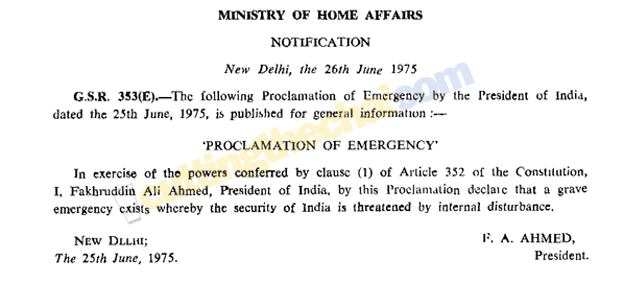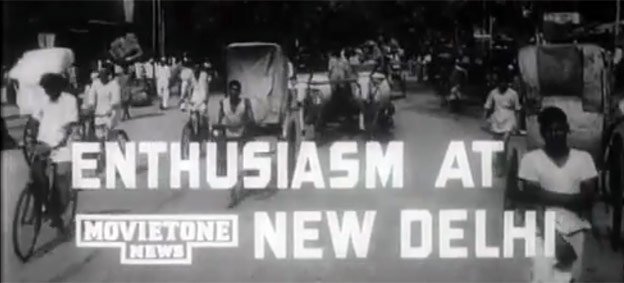64 years later, Shillong is virtually unrecognisable. I could only recognise the Governor House on Bivar Road, then known as Government House, the characteristic Ward’s Lake and the Assembly House (destroyed in a fire on January 9, 2001).
These photographs from Government of India’s Photo Division were taken when Sardar Vallabhbhai Patel was on a visit to the city in January 1948, as a part of his effort towards the political integration of independent India. Shillong was then the capital of Assam.
Old images of a city and childhood pics. They evoke similar feelings. Along with a longing for a time long gone, there is also the excitement of identification. Often it turns out to be a game for friends to play together.
I invite my fellow Shillongites to join me in this game and help identify all the places in these photos and correct any identification errors on my part. I could at best make some calculated guesses (the church in images 13, 16 and 17 is probably in Mawkhar, but I’m not sure).
Update (October 16, 2012): Ramesh Bawri, an eminent Shillongite, has provided valuable information to accompany the photographs. I’ve added them to the photographs.
Text of the speech that Sardar Vallabhbhai Patel, made on January 2, 1948 at a public meeting in Shillong.
The straight talking Deputy Prime Minister and Home Minister of India did not shy away from calling the people from Assam lazy. Assam is also referred to as the Land of Lahe Lahe (‘Lahe lahe’ in Assamese means ‘slowly slowly’).
I desired to see for myself after 22 years the progress which Assam had made during this period. More particularly I wanted to see how Assam had been affected by recent events including the separation of a part of Sylhet. India has had to shoulder a great burden; this has involved suffering and privation. It has also filled all of us with deep sorrow. During the struggle for freedom although we had borne tremendous suffering we had never flinched or grieved because the very struggle contained zest and keenness which conquered haif-heartedness and sorrow.
We thus won Freedom but if we had not suddenly turned mad we would have started reaping its fruit and enhancing our prestige and reputation in the eyes of the world. Instead of appreciating the value of what we had achieved, we behaved worse than animals. It was in no light-hearted manner that we agreed to partition. This price was necessary to gain freedom and to live in freedom.
However, there is no time now for grieving over what has happened. We must now forget what we have suffered. We must remember that we have still our brethren across the frontier whom we have to evacuate and settle in this country. We hope Pakistan will not give us any trouble; instead it will assist us in that task so that we may accomplish it peacefully and successfully in order that each of us may settle down to the vital task of reconstruction which awaits us. Thereafter there would be no bone of contention.
In this connection, I appreciate that Kashmir and Hyderabad are still the two problems which remain outstanding. Though contrary to what Pakistan contends, Junagadh has ceased to be a problem. Of these two problems, Hyderabad, I am certain, would itself realise the path of wisdom and sanity. But if it did not, the problem would not remain confined to Hyderabad alone, but would have wide repercussions.
There are four and a half crores of Muslims in the rest of India who are bound to be affected if Hyderabad releases what will in effect be a cloud of poisoned atmosphere. As regards Kashmir, I am definite that the problem will settle itself sooner then many expected but if it persists, while it may damage India to some extent it will finish Pakistan…
India intends to wish Pakistan well. All the problems incidental to partition have been amicably settled. Surely, that is not like enemies but like mutual well-wishers. If only the problem of evacuation and exchange of population had been settled successfully and satisfactorily, relations between India and Pakistan would have been much better…
Words cannot describe the horror of sufferings which the Punjabis have suffered. The rehabilitation of refugees is a very difficult task and in that task I invite the co-operation of every citizen of every province. There is no room here for provincial parochialism or for inter-provincial jealousies. If such tendencies develop, it would mean the ruin of India. Instead there must be rivalries in advancement and prosperity. I, therefore, thank the people of Shillong for the purse of Rs 10,000 which has been presented for the relief of the refugees. What matters so much is not the contribution but the spirit behind it…
I recall how only six months ago there was a general talk of Rajastan which if it had materialised would have meant that the whole body politic of India would have been covered with ulcers. Instead we have achieved integration and unity which have promised immense potentialities for glory and greatness. It is now, for all of you either to mend or mar your future. If you want to secure your future you could do so only by unity in which lies strength. I am happy that the people of Assam have forgotten and forgiven the efforts which the Muslim population made for the achievement of Pakistan. I hope that this good turn will be taken up and you will achieve unity. This obviously means that if there is a struggle with Pakistan, Muslims in India must stand by their country. They must tell Pakistan, “You have got what you wanted. For heaven’s sake let us now live in peace.”
I have a special word for the young men whom I see around me. I know that many of you wished to sponsor Socialism but you must realise that unity should come first. It is no use merely crying. “We are Socialists”. You cannot comprehend Socialism by reading text-books or listening to learned speeches. You must first understand what it means in practice and how the ground has to be prepared for it. You must realize how long England took to become socialistic, and America does not even talk of it now. They say I am a friend of the rulers and the capitalists; but I am a friend of the Harijans, the poor and the tribes. I am also a friend of the Socialists. Unlike many who indulge in the parrot cry of Socialism, I have no property of my own. Before you talk of Socialism, you must ask yourself how much wealth you have created by your own labour. If you have created nothing the parrot would have flown and the cage would be empty.
By experience, I am convinced that what is necessary is for us to learn how to produce wealth and then to produce and thereafter to think what to do with it. What the province wants most is not this parrot cry of Socialism but unity and strength. Yours is a land for gods to live in. Its air, its natural scenery, its pure atmosphere, its sweet water would attract even gods if our hearts were pure, but the population was lazy and it did not know how to make the best of resources. You must first, therefore, get rid of your enemy which is laziness. There is so much to be done.
If you produce your own cloth, your own food and abstain from drinks you can change the entire rural atmosphere. You have then to harness your rivers. You have established a High Court and a University. You must concentrate on this useful and constructive work and not lose yourselves in theoretical disputes about Socialism. Some people feel that they can settle all problems by wielding the big stick and by reciting ad nauseam the elementary ideas about Socialism. They forget that it is not coercion or hatred but affection and regard which would prove most effective. That is the divine way of doing things. You have also to look after the border of which you are the gate-keepers. It is a big responsibility for it involves dealing with the enemies and welcoming friends.
The natural sceneries are an asset to your province. There may not be the loftincess of the buildings in Calcutta. There may not be the wealth of the cities but they have beauty and naturalness. Although I am going to Calcutta, a bigger place and would stay in a bigger Government House, I would miss the simplicity and natural life that I have come across in Shillong. I am sure I shall not see anything like it.
I ask you to make full use of your Prime Minister, a self-sacrificing man of ability and truly competent; and your Governor who has been specially selected for you, and who is working for you. His experience of men and affairs is unrivalled.
I wish you create in Assam a model for the rest of India. I hope during the coming few years, I can see something of what you accomplish to this end. In your achievements I shall find the noblest gesture that could ever be the luck of any individual to receive.
The Prime Minister is of course Jawaharlal Nehru and the Governor, Patel referred to in his speech was Ronald Francis Lodge, a retired Indian Civil Service officer who was also the Chief Justice of the High Court of Assam. Lodge served as the Governor for only a month and a half from December 30, 1948 to February 15, 1949.





























Thrilled 2 c yhe photographs…..